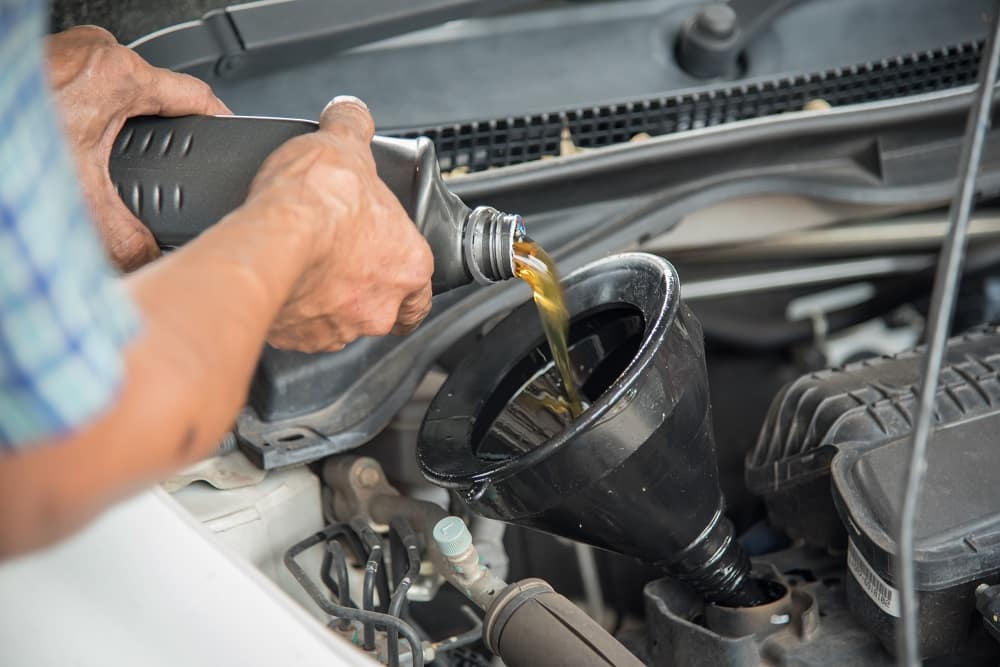How Much Oil Does My Car Need? (Facts)
A specific volume of oil is required for your car’s oil to function properly. You should check the oil level in your car’s engine every time you replace the oil. If you want to know how much oil does my car need, then you should continue reading this article.
How much oil does my car need? If you are searching for the answer to this, you are on the right platform. Before going into the answer. Here is a brief introduction.

When performing routine maintenance, automobile owners who are less familiar with their vehicles frequently inquire.
How much oil does my car need? Regardless of whether you are driving your first or tenth vehicle, it is crucial to know the answer to this question.
The cause of car engine failure is a lack of oil, and since this is a serious issue, fixing it can be expensive. Reading this essay will help you understand how to avoid a huge catastrophe in the future.
READ ALSO:
- How Much Does it Cost to Put a Dog Down
- How Much Do Radiologists Make
- How Much are Ferrets
- How Much Caffeine in Celsius
How Much Oil Does My Car Need?

Different automobile engines come in different sizes and are thus built to hold varying amounts of motor oil, all car engines do not have the same oil capacity.
Knowing important information about your car, such as how much oil its size needs is essential.
Although I’m sure you haven’t read it, the manufacturer’s manual for your car contains most of this information.
The majority barely ever. However, you can’t afford to ignore it for too long because failing to learn more could cause an expensive error. Below are the numbers of oil your car need.
| Engine | Required Engine Oil |
| Single Cylinder Engine | 3.0 to 3.5 liters of engine oil |
| Two-Cylinder Engine | 3.5 to 4.0 liters of engine oil |
| Three-Cylinder Engine | 3.5 to 4.0 liters of engine oil |
| Four-Cylinder Engine | 3.5 to 4.5 liters of engine oil |
| 6 Cylinder Engine | 4.5 to 5.5 liters of engine oil |
| 8 Cylinder Engine | 5.5 to 7.5 liters of engine oil |
What Kind of Oil Does My Car Take?

In this article, you can learn more about your automobile or other vehicles if you’re not sure what kind of oil it requires so you can get motor oils that are properly suited to your requirements.
Learn the distinctions between mineral and synthetic oils first (scroll up to learn more). The decision between the two will be heavily influenced by how old your car is.
Next, you can discover more about the various motor oil standards that apply to the market. The ACEA standard, which has a letter and a number, falls within this category (B3, for instance).
A denotes that it is for gasoline engines, B that it is for automobile diesel engines, C that it is for light engines with particle filters or catalytic converters, and E that it is for commercial vehicles.
The ACEA number indicated the oil’s performance. There are five categories of vehicles with pollution control systems.
In conclusion, there are (C1, C2, C3, C4, C5), three for gasoline and diesel engines (A3/B3, A3/B4, A5/B5), and four for commercial vehicles (E4, E6, E7, E9, of which two are for vehicles with a pollution control device: E6 and E9).
READ ALSO:
- How Much Do Underwater Welders Make
- How Much Prime Rib Per Person
- How Much Does Wendy’s Pay
- How Much Do Barbers Make
Frequently Asked Questions
Kindly leave a comment in the comment section if this article is of great benefit to you. Also, share this content with family and friends.
